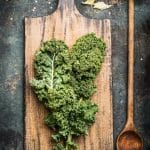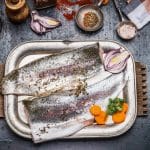
Fighting Hay Fever With Food
Blossom and pollens begin to become greater as the weather begins to warm. As nice as this is to witness, there are 10 million people in Britain who will begin to feel the effects of hay fever.
£50 million is spent on medication to control the itchy eyes, bunged up noses and drowsiness many experience. Aside from the huge financial costs, medications can often lead to further side effects, including fatigue, mood changes and nasal irritation.
Research has shown the hugely positive impact nutrition can have on improving these symptoms without the need for powerful medications, reducing mucus production and histamine levels, making life far more pleasant for many.
So what should you be eating in order to combat against your hay fever, and what should you be avoiding in order to discourage the unpleasant symptoms?
WHAT TO EAT
| Quercitin
A natural antihistamine and anti-inflammatory, which helps to boost the immune system. (Cranberries, berries, peppers, onions, kale, apples, parsley, garlic) |
       
|
| Omega 3 and 6
A natural anti-inflammatory with immune boosting properties. (Citrus fruits (but not oranges!), strawberries, broccoli, papaya, mango, kiwi) |
       
|
| Vitamin C
Essential fats with anti-inflammatory properties. (Avocado, olive oil, oily fish, seeds, nuts) |
           
|
| Beta-carotene
Converts to Vitamin A within the body, aiding the production of healthy mucus membranes, reducing infection and inflammation. (Apricots, mango, papaya, pumpkin, carrots, orange peppers, sweet potatoes, spinach, kale) |
        
|
| Bromelain
Reduces the production of mucus. (Pineapple) |
 |
| Curcumin
A powerful antioxidant and anti-inflammatory found to have anti-allergy properties. (Turmeric, curry powder) |
 
|
| Probiotics
Good bacteria that improves the balance of your gut and immune system, helping to protect you against allergens. (Yoghurt, sauerkraut, pickles, garlic) |
   
|
WHAT TO AVOID(Dairy, bread, pasta, rice, processed sugar, ready meals, tomatoes, oranges, chocolate, alcohol, caffeine) |
            
|
To discuss our Employee Nutrition Services, call 07810 716758 or email Anna.


